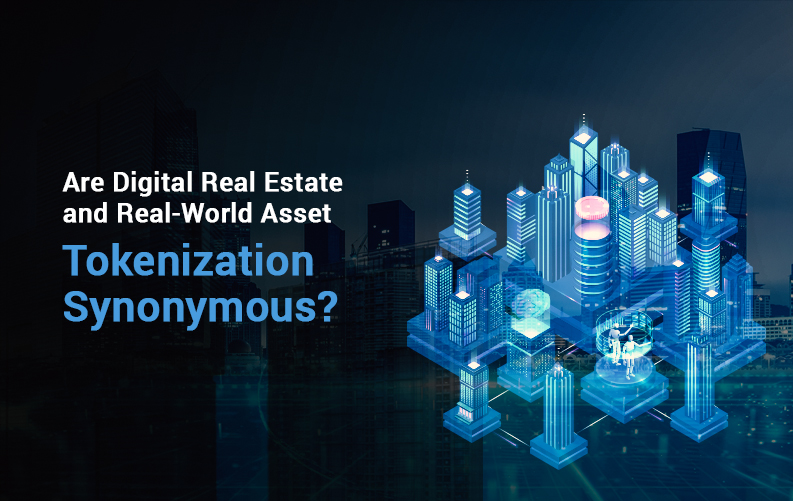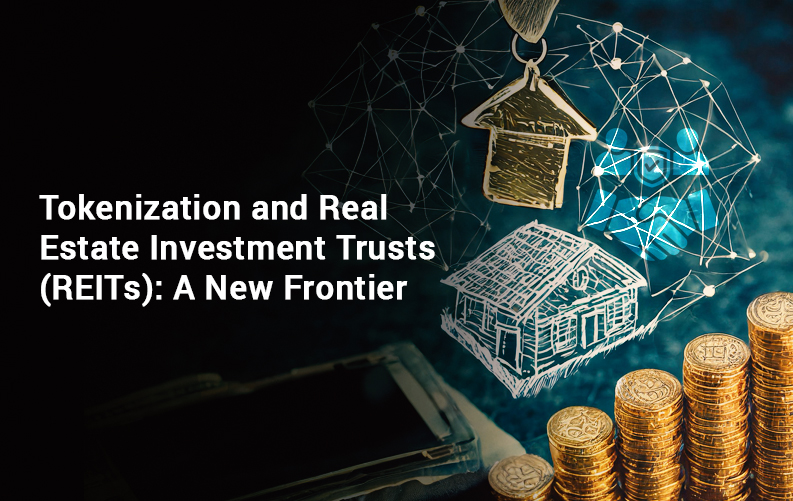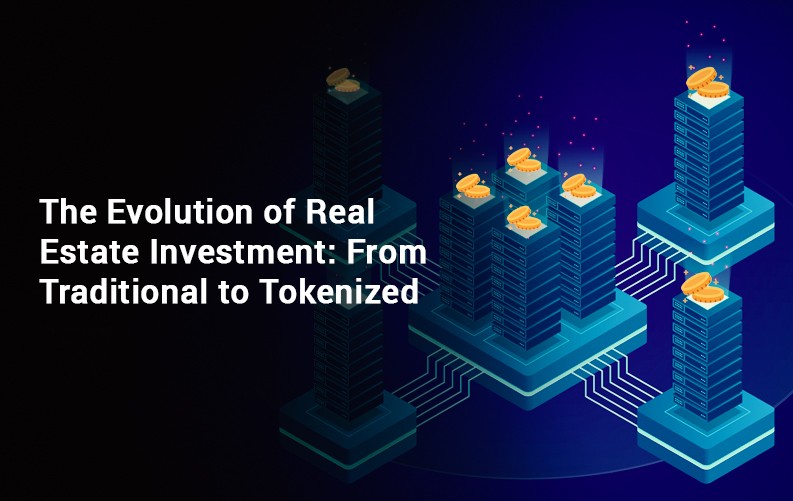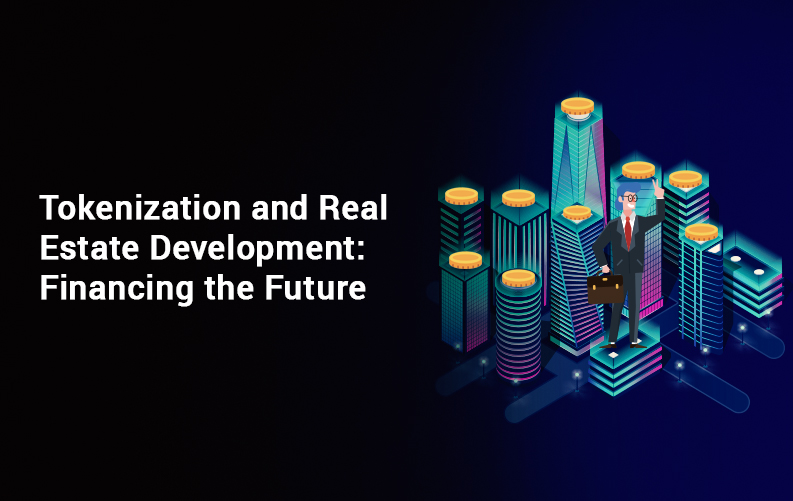The rise in the prominence of digital real estate and real-world assets in the modern world is well-known to most people. This gain in significance is due to a range of factors, especially due to advancements in technologies, prominently blockchain, decentralized finance, and smart contracts. Alongside this, the inclusivity of people from various stages of society is another major reason for their increasing popularity. In this blog, we will comprehend the basics of digital real estate and RWA (Real World Assets) tokenization, their synergies, and how they vary with each other.
Understanding the Fundamentals of Digital Real Estate and Real-World Asset Tokenization
Digital Real Estate refers to digital assets or online assets that are valuable and can generate income. It includes websites, NFTs (Non-Fungible Tokens), mobile applications, URLs, social media accounts, and virtual world. The domain of digital real estate is the same as that of physical real estate where you can purchase, sell, and even rent digital real estate and make profits from the same.
Real-world asset Tokenization refers to the ownership of real-world assets like real estate properties, commodities, collectibles, intellectual properties, and artworks. It converts the ownership rights of these assets into cryptographic tokens and opens investment opportunities to a wider range of audiences
Point of Convergence that Raises Confusion Between Digital Real Estate and RWA Tokenization
Often people get puzzled because both these terms deal with virtual ownership. Besides these are processed over the digital marketplace. Here, are the major areas of confusion and brief explanation of the distinctions-
Asset ownership
Both technologies revolve around ownership of the assets but have different notions. Digital real estate roams around the virtual properties, while real-world asset tokenization transforms ownership into digital tokens.
Investment opportunities
Both offer grounds for people to invest digitally without needing physical interaction. Also, it eases the process of investments by eliminating the need for cumbersome processes. They are amongst the most significant alternative investment windows with high-value returns.
Fractional ownership
Both of them allow the people with an option of fractional ownership of the assets. Thus, adding more inclusivity as it attracts a wider range of investors and traders where they need not worry about their background or surplus of wealth to invest in.
Enhanced liquidity
Both concepts offer investors a marketplace with increased liquidity. They leverage the digital space and facilitate efficient and easier ways to indulge in the trading, buying, or selling of assets.
Ever-changing marketplace
Both these digital innovations open the gate for investors with a forever transforming market. As the world over digital interface has been changing; thus, increasing the evolution of the related sectors. This modifying ecosystem leads the investors to new possibilities to explore and make wealth.
Carving out the Different Worlds of Digital Real Estate and Real-World Asset Tokenization
In recent times, both terms have been gaining momentum and people are using them to capitalize on the digital space and delve into virtual economy. Although the terms seem remarkably similar, they both deal with ownerships of distinct domains. Highlighting the contrasted areas to clarify the key differences in their ownerships-
| Digital Real Estate | Real-World Asset Tokenization |
| Base Asset- they own virtual properties like virtual lands, websites, NFTs, and digital currencies. | Base Asset- they represent the ownership of the physical property that can be fragmented. |
| They exist solely in the digital environment. | They involve converting physical assets into unit naming tokens. |
| Ownerships- their ownership can be recorded digitally on a blockchain. | Ownership- their ownerships are recorded in the form of digital tokens on a blockchain. |
| They are intangible as they exist in the digital realms only and value depends on several factors. | They are backed by tangible assets and their value depends on the value of linked assets in the real world. |
| The primary focus is online games and virtual reality. | The primary focus is on the investment opportunities. |
Kalp is a pioneering digital public infrastructure, powered by a regulated permissioned decentralized coalition DLT (Distributed Ledger Technology) that enables the SMART Exchange platform. This platform uses tokenization to allow investment in real-world assets in a secure, innovative, and user-friendly way. By making investing in real-world assets more accessible, SMART Exchange aims to support specialized businesses. With its structured approach, stringent security, and commitment to compliance, the platform offers an appealing possibility for diversified and efficient investing. Its regulation, security measures, and focus on usability and compliance make it stand out as an accessible way to add real assets to an investment portfolio.
Conclusion
The terms digital real estate and real-world asset tokenization are not as synonymous as many people think. Even though they share some similarities, they deal with dissimilar asset ownership. The area of potential confusion arises in the domain of asset ownership over the digital interface, along with factors like enhanced liquidity, fragmented ownership, control, valuation, and transforming marketplace. However, while digging more one can find the contrasting characteristics of both the terms. Digital real estate roams around the ownership of virtual plots in the digital world and aims to transform virtual reality and online gaming. While real-world asset tokenization deals with the ownership of physical assets and converting them into tradable digital tokens. Both concepts are still alien to a lot of people; however, penetration of the internet has attracted a lot of people into this new mechanism. As these concepts are still evolving, there are various platforms that are adding to the layer of opportunities and options within these domains. One such option is SMART, an acronym for Shared Market of Assets & Real-Estate Tokens. The platform is built on the Kalp blockchain enabling the tokenization of physical assets like real estate, commercial airplanes, commercial yachts, and others.
For more information and queries, please visit SMART, a user-friendly platform for investors with fractional ownership and diversified investment opportunities.







